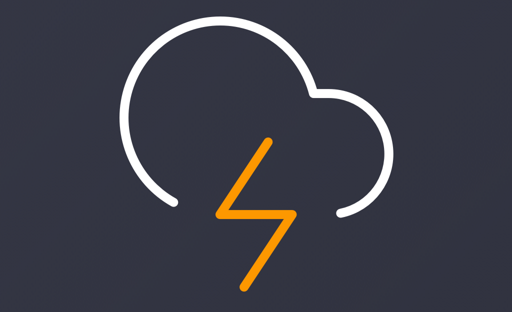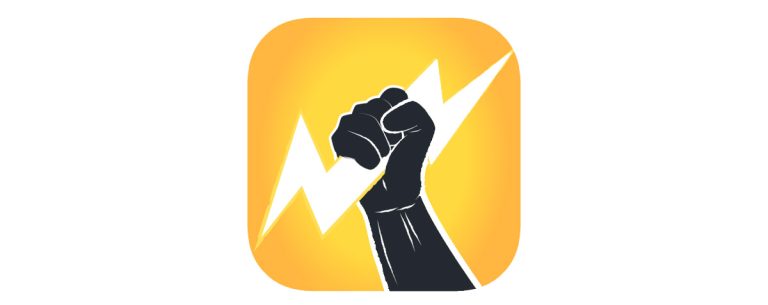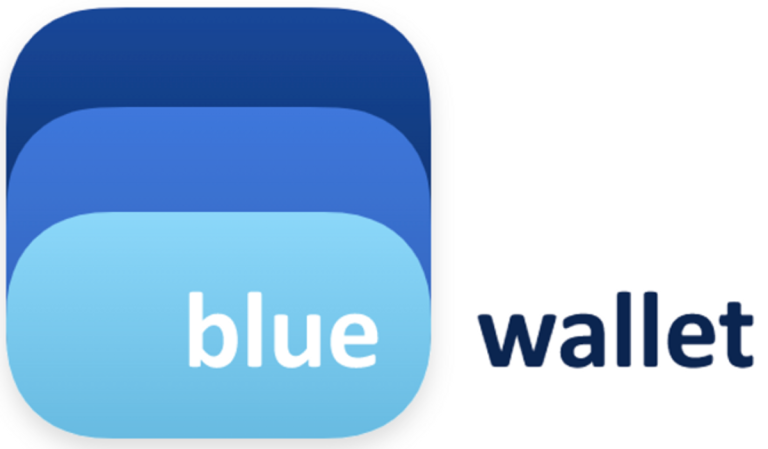We may earn a commission from links on our site, but this doesn’t affect our reviews. Learn more.
Hedge With Crypto is an independent publisher that provides objective and free content. Articles on our site may include links to our partners. If you click on these links, we may earn a commission. However, our editorial content remains unbiased, reflecting our own opinions or the general information available. For more information on our company policies, read the Affiliate Disclosure, Privacy Policy, and Terms & Conditions.
Best Bitcoin Lightning Wallets
If you regularly transact using Bitcoin, a Lightning Wallet is a must-have. We’ve compared the best lightning wallets available to help you decide which suits you.
Hedge With Crypto aims to publish information that is factual and accurate as of the date of publication. For specific information about a cryptocurrency exchange or trading platform please visit that provider’s website. This information is general in nature and is for education purposes only. Hedge With Crypto does not provide financial advice nor does it take into account your personal financial situation. We encourage you to seek financial advice from an independent financial advisor where appropriate and make your own enquiries.
TABLE OF CONTENTS
With the vast quantity of lightning network wallets on the market, it can be difficult to determine which offers the best combination of low fees and performance. However, we've compiled this list of the best Bitcoin lightning wallets to make it easier for our readers to choose which best matches their needs.
Here's our short list of the best Lightning Network wallets based on usability, fees, maximum transaction volume, and other review criteria:
- Wallet of Satoshi (best overall Bitcoin lightning wallet)
- Electrum (best for desktop transactions)
- Exodus (best for storing altcoins and using Lightning in one wallet)
- Breez Mobile (best for using Lightning Network on the go)
- Zap Wallet (best for wallet customization)
- Muun Wallet (streamlined wallet)
- Phoenix Wallet (best non-custodial Lightning wallet)
- Zeus Wallet (best for network control)
- Blue Wallet (best for on-chain and Lightning funds in one wallet)
Featured Partner
Kraken
Crypto platform for smarter investing.
4.8 out of 5.0
Kraken is a US-based crypto trading platform that is best suited for users who need crypto-to-fiat and crypto-to-crypto trading facilities. One of the most regulated and security-focused exchanges, Kraken is a great choice.
200+
USD, GBP, EUR, CAD, CHF, JPY & AUD
Bank transfer, SWIFT, SEPA, debit and credit card
0.16% (maker) and 0.26% (taker)
Review of the Top Lightning Network Wallets
1. Wallet of Satoshi
Wallet of Satoshi is a highly versatile custodial Lightning wallet that excels in simplicity. Ideal for beginners due to its no-frills interface that clearly outlines your holdings, the wallet doesn't require any sign-ups, making it a great choice for privacy-focused individuals looking for a straightforward way to start taking advantage of the benefits of Lightning transactions.
-
Trading Fees:
N/A
-
Currency:
N/A
-
Country:
Worldwide
-
Promotion:
None available at this time
Wallet of Satoshi specializes in Lightning transactions. To this effect, the platform supports on-chain payments but charges a 0.5% fee in addition to another fixed charge, which varies based on the Bitcoin Mempool. Similarly, Lightning payments will incur a variable routing fee. However, this charge is passed directly to Lightning node operators, with Wallet of Satoshi retaining 0% of these charges.
Completely free to download and use, Wallet of Satoshi is mobile-only and offers a competitive set of features compared to other options. The app has an in-built Point-of-Sale (POS) system for businesses wishing to take BTC payments via Lightning, making the wallet useful for the retail space.
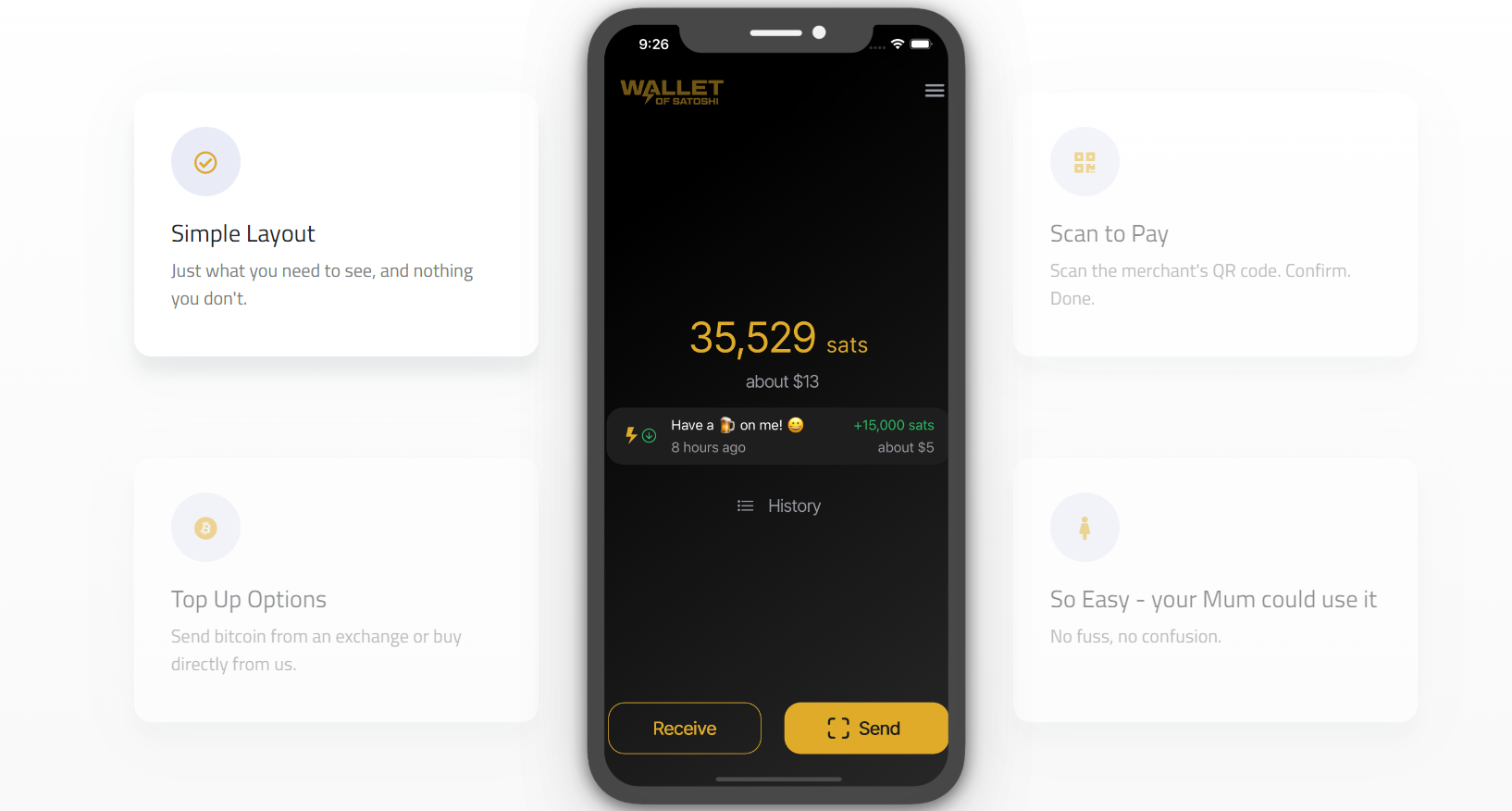
For those without existing crypto holdings, Wallet of Satoshi has a built-in fiat-to-crypto trading exchange. However, MoonPay provides the wallet's crypto-purchasing functionality, meaning that you'll be paying a fee of roughly 6.3% to 3.33% based on the size of your transition. Additionally, you can use this service to sell your crypto, but the provided rates will be noticeable below what the top crypto exchanges like Binance offer based on our review.
Wallet of Satoshi does not support tokens other than Bitcoin, so it's less versatile than alternatives like Exodus.
2. Electrum
Electrum is a popular Bitcoin wallet that has been operating steadily since 2011, indicating great trustworthiness, further evidenced by its stellar track record. On top of being secure, Electrum is completely anonymous, requiring no personal information for any functions. As such, it is an excellent choice for anyone looking for a Lightning wallet that lets them retain as much privacy as possible.
-
Trading Fees:
N/A
-
Currency:
N/A
-
Country:
Worldwide
-
Promotion:
None available at this time
Like Wallet of Satoshi, Electrum exclusively supports Bitcoin, which could cause trouble if you're looking to store a mixed bag of assets on your Lightning wallet. As Electrum Wallet is completely anonymous, there's no way to purchase crypto with fiat on the platform, meaning you must buy Bitcoin from another platform to use it and deposit it to Electrum.
One of the biggest advantages of Electrum is control over fees. For standard on-chain transactions, you can dictate the network fees yourself using a simple slider that provides a rough estimation of how long the Bitcoin transaction will take to confirm based on the fees. However, manually setting fees is not available for Lightning transactions. Instead, costs are determined by network conditions and routing for the payment.
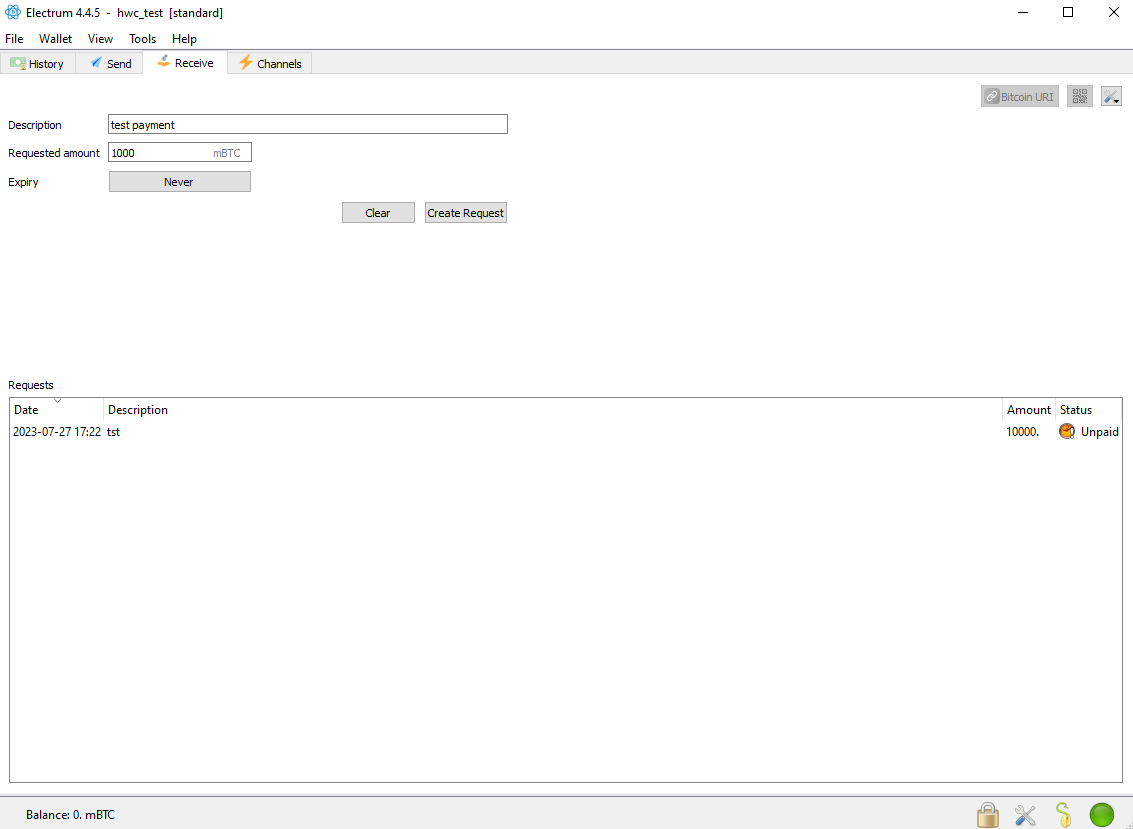
Creating a Lightning payments channel on Electrum requires at least two mBTC (roughly $22) in your wallet. Therefore, you must have some BTC to access the Lightning network using Electrum. Furthermore, you must check whether there is a remote balance in any Lightning channels you create to determine how much you can receive. However, Electrum includes a ‘can receive' option to determine this automatically.
Electrum is a very hands-on crypto wallet that can take some getting used to. Although the software is simple at its core, only supporting BTC transactions, more manual input is required compared to other Lightning wallets.
3. Exodus
Exodus Wallet has earned its place on our list of the best Bitcoin Lightning wallets as its available on mobile and desktop with a huge variety of features not seen on other wallets, including swaps, NFT support, a fiat on-ramp, and a staking platform. As such, Exodus is a great choice for anyone looking for an all-in-one wallet that supports Lightning payments and other services seen more commonly on an exchange.
-
Trading Fees:
2% to 10% for purchases/swaps
-
Currency:
USD, EUR, GBP, +25 Others
-
Country:
Worldwide
-
Promotion:
None available at this time
It's important to note that Lightning payments are only available on the mobile version of Exodus. Additionally, Exodus has partnered with Wallet of Satoshi for its Lightning wallet. Therefore, although you can swap your funds between Exodus and the Exodus Lightning wallet for a 0.3% fee (plus 5,000 sats for withdrawing), the actual service is provided by a third party.
The wallet supports 346 coins, including Bitcoin, Ethereum, and XRP. However, to send Bitcoin via the Lightning Network, you must transfer a maximum of $100 in BTC into the Exodus Lightning Wallet hosted by Wallet of Satoshi.
While Exodus is designed primarily as a wallet to be funded with cryptocurrency, you can top up using 32 fiat currencies, including USD, EUR, and GBP, via debit/credit card, bank transfer, or Google/Apple Pay. However, fiat purchases are conducted via MoonPay or Ramp, meaning you could pay fees of around 3-5% per purchase, making it cheaper to buy from an exchange (for example, Binance fees are 0.1%) and transfer the BTC to Exodus.
Outside of the fees for depositing and withdrawing BTC to the Exodus Lightning Wallet, there are fees to send Bitcoin, which means you must pay a variable network fee and a variable routing fee when sending a Lightning transaction. Additionally, you must pay a 0.3% fee if you empty your Lightning wallet balance by sending it all via the Lightning Network.
Exodus's implementation of Lightning Payments is fairly limited but should be fine for most users. While no Point-of-Sale system is included, you can create payment requests in address/QR code format and send money easily.
Read our full Exodus wallet review.
4. Breez Mobile
Breez is a mobile-only lightning network wallet that has gained worldwide attention for its simplicity and powerful feature set. Outside of sending and receiving BTC via the Lightning Network, Breez includes a podcast community, a POS system, and direct integration with several dApps, including LN Markets, Fixed Float, and Boltz, which vastly expand the value offered by the Lightning Network.
-
Trading Fees:
N/A
-
Currency:
USD, EUR, GBP, and JPY (via third-party)
-
Country:
Worldwide
-
Promotion:
None available at this time
Like Wallet of Satoshi, Breez solely caters to the Bitcoin community and only supports BTC. Additionally, there is no way to buy BTC directly in the app, meaning you'll get the most value from Breez if you already hold Bitcoin or are verified on an exchange like Binance or Bybit.
Breez operates its own Lightning routes, meaning that its fees will vary slightly from competitors. While writing our review of the best Bitcoin Lightning wallets, the platform charges 0.4% for creating a new channel with a minimum fee of 2,500 SATs. When sending a Lightning transaction, a one SAT fee is charged in addition to a variable routing fee.
The in-built POS system offered by Breez is simple to use and efficient. Due to the large keypad, setting up a sale is easy. What's more, a dropdown menu lets you choose between BTC, SAT, USD, EUR, GBP, and JPY, so it's easy to determine exactly how much you're charging in several currencies without doing any calculations. Therefore, Breez mobile is a great choice for businesses looking to take Lightning payments.
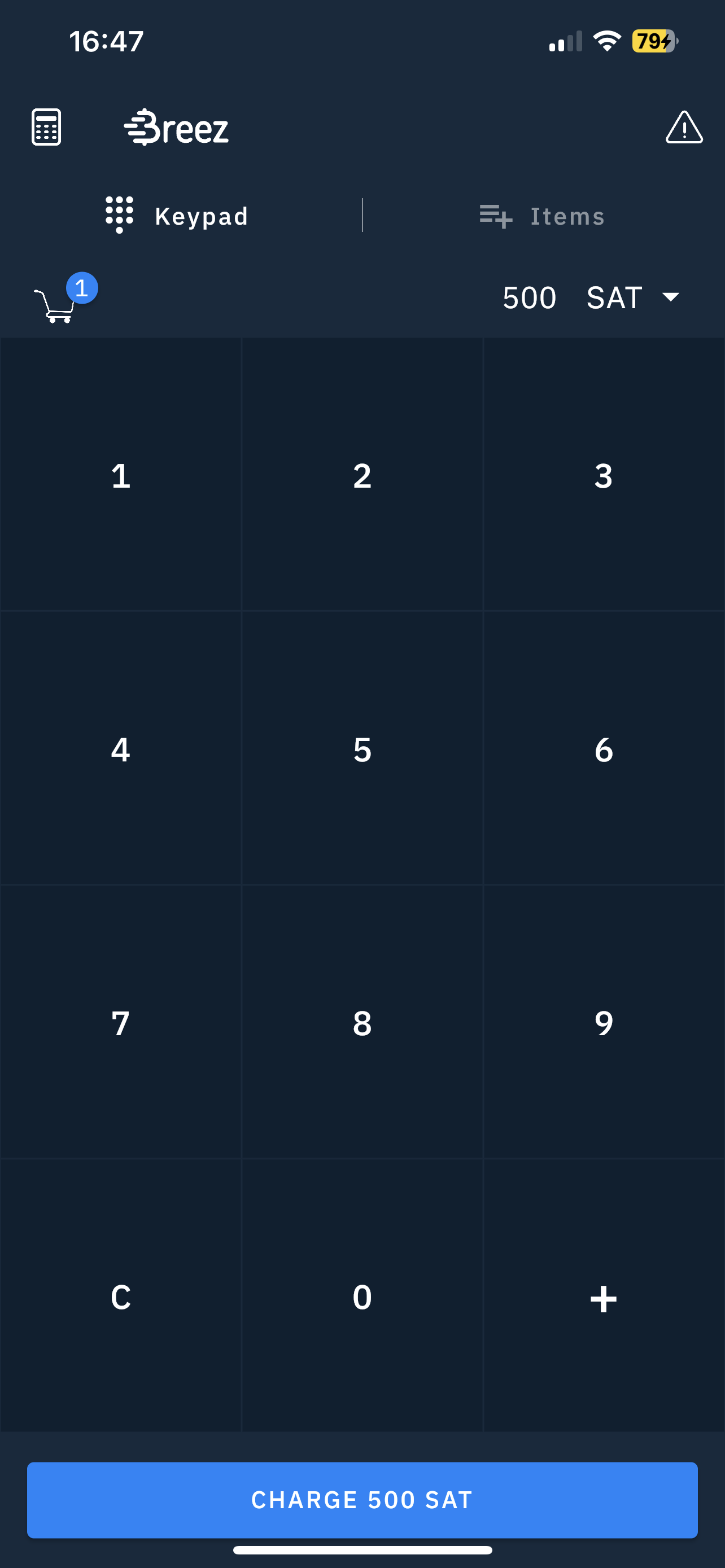
Breez's Podcasting community is limited, with around 20 shows mainly focusing on tech/finance-related topics. However, the integrated dApp browser is more versatile, with some offering BTC trading functionality and the ability to buy prepaid cards with BTC via the Lightning network. However, all of these services are operated by third parties, which is something to keep in mind.
All in all, Breez Wallet is capable, well-rounded, and intuitive. Direct integration with several dApps vastly improves the wallet's functionality, and the ability to swap display currencies between BTC, SAT, and fiat is useful for conducting efficient transactions. As such, Breez is the best option for small businesses that want to accept Bitcoin cheaply and efficiently.
5. Zap Wallet
Available on desktop and mobile, Zap Wallet is highly customizable, making it a great choice for anyone looking for total control over their funds. The wallet lets you set custom payment channels, which is useful for experienced users to attain reduced fees for Lightning network payments. Furthermore, Zap supports many languages and fiat currencies, making it a strong choice for international investors.
-
Trading Fees:
N/A
-
Currency:
N/A
-
Country:
Worldwide
-
Promotion:
None available at this time
Like many popular Lightning Network wallets we've included in our list of the best Lightning Network wallets, Zap is solely focused on Bitcoin and therefore does not support any other cryptocurrencies. As such, while a strong choice for people invested in or taking payments in Bitcoin, it leaves something to be desired if you're looking for an all-in-one wallet like Exodus.
Unfortunately, no fiat-to-crypto gateway is present on Zap Wallet, meaning you'll need to have funds in BTC or be verified on an exchange to use the wallet. Additionally, when you open a payment channel (either using a custom key or one included in ZAP), you must have BTC on-chain, as you'll be required to commit funds to the node before being able to complete Lightning transactions.
Zap Wallet does include a custom fee system enabling you to select transaction priority (high priority incurs higher fees while lower priority is cheaper). However, during testing for our review of the best Bitcoin Lightning wallets, the preview function didn't work, meaning we could not determine fees before sending Bitcoin payments.
A useful feature Zap offers is the ability to differentiate your on-chain and Lightning Network balances easily. The wallet dropdown menu highlights your open payment channels and balances. With Zap also offering the ability to swap between BTC, SAT, and bits, Zap makes managing your BTC holdings simple.
Zap Walet is simple to use thanks to the intuitive interface and highly customizable due to the custom payment channels and the ability to change priority block targets. However, it lacks a POS system, fait-to-crypto support, or support for altcoins. As such, Zap is best suited to Bitcoin investors who want a highly customizable wallet for Lightning Network and on-Chain payments.
6. Muun Wallet
Muun is a foremost mobile Lightning Network wallet designed solely for Lightning transactions. The wallet is straightforward, boasting no additional features besides sending and receiving payments. Therefore, Muun Wallet is best suited to Bitcoin investors who don't value customization and are looking to get started with Lightning payments in the simplest way possible.
-
Trading Fees:
N/A
-
Currency:
N/A
-
Country:
Worldwide
-
Promotion:
None available at this time
Muun Wallet lets you choose between transacting on the Lightning Network or the on-chain Bitcoin network, which is very useful for quickly sending BTC to several addresses without swapping wallets. However, Muun is a custodial wallet, meaning you do not control the wallet's private keys. As such, Muun is less secure than non-custodial wallets like Electrum.
Regarding Muun Wallet's fees, most transactions typically cost a few SATs, comparable to other Lightning Wallets. However, because Muun automatically opens new payment channels on your behalf, the wallet will sometimes charge far higher fees as the opening process must be completed on-chain. Unfortunately, Muun is not upfront about this, which could lead some people to feel they've been unfairly charged.
Muun is an extremely basic Lightning wallet boasting no extra features like staking or support for multiple assets. However, the wallet does include a security center that advises you on how to secure your funds. The advice is basic: backing up your wallet and creating an emergency kit with any recovery information. While limited, this information could be ideal for a beginner looking to secure their funds better.
Overall, Muun Wallet is easy to use and offers a great entry point into the world of Bitcoin and Lightning payments. While people looking for advanced features should consider another option, Muun is worthy of consideration if you're looking for the easiest way to send and receive BTC through the Lightning Network.
7. Phoenix Wallet
Phoenix Wallet is a non-custodial Bitcoin wallet that specializes in Lightning transactions. Only available on mobile, Phoenix offers a simple way for anyone to send and receive Lightning payments. Many Lightning Wallets that automatically create payment channels, like Wallet of Satoshi, are custodial. However, as Phoenix is non-custodial, it offers far greater security, making it ideal for those looking to protect their funds.
-
Trading Fees:
N/A
-
Currency:
N/A
-
Country:
Worldwide
-
Promotion:
None available at this time
Phoenix Wallet exclusively supports Bitcoin, meaning it's unsuitable for people wishing to store altcoins and send Lightning transactions from a single wallet. However, you can send non-Lightning payments to Phoenix. However, first-time deposits must be at least 10,000 SATS, and a 1% fee (3,000 SAT minimum) will be levied against this deposit as on-chain deposits are automatically converted to Lightning channels.
Although Phoenix Wallet automatically opens payment channels on your behalf, like Muun, Phoenix is far more upfront about how this process works and the costs involved. While typical Lightning payments will incur a small network fee and a variable routing fee, channel creation costs 1% of the transaction value with a 3,000 SAT minimum.
Although Phoenix Wallet doesn't let you add custom payment channels, the wallet does include a list showing every payment channel that has been opened on your behalf. Viewing your payment channels is crucial for understanding your transaction route and identifying why you've been charged a particular fee, as every node sets its own routing cost.
Phoenix Wallet is a good alternative to more popular Lightning wallets like the Wallet of Satoshi. Because Phoenix is non-custodial, it offers greater safety than alternatives, making it a great choice for security-conscious investors. That said, it doesn't feature a POS system or any additional features, meaning it's not the best choice for businesses or those seeking advanced features and integrations.
8. Zeus Wallet
Zeus Wallet is a popular alternative to platforms that automatically connect to nodes and create payment channels on your behalf, like Wallet of Satoshi. Ideal for anyone looking for total control over their Lightning wallet and the nodes it connects to, Zeus requires you to manually input details of a node for the wallet to become functional, making it a strong choice for those hosting their Lightning nodes.
-
Trading Fees:
N/A
-
Currency:
N/A
-
Country:
Worldwide
-
Promotion:
None available at this time
As is typical for a Lightning wallet, Zeus only supports Bitcoin and no other cryptocurrencies. However, the wallet offers support for on-chain BTC transactions and Lightning Network payments, making it superior to Phoenix Wallet for those wishing to complete multiple types of transactions using the same wallet.
Zeus Wallet lets you transact on the Lighting network with zero processing fees, making it noticeably cheaper than Exodus and any other platform that charges a premium for actions like funding your Lightning wallet. Routing and transaction costs will vary based on your payment channel and which node you're connected to. However, Zeus lets you preview fees by channel to make it easy to understand any charges.
Zeus makes it clear if your BTC balance exists on a Lightning node or on-chain, making it simple to understand how your funds are denominated. A POS system also exists natively within Zeus Wallet, making the app suitable for businesses wishing to take customer Lightning payments.
Related: Which companies accept Bitcoin as payment?
Zeues Wallet is a great choice for people with a good deal of experience using the Lightning Network. Although it takes far more setup than Wallet of Satoshi, as you must manually connect to a node and set up payment channels, it does provide greater control than all other wallets we've looked at. Therefore, Zeus is best for advanced users looking to maximize control over their funds.
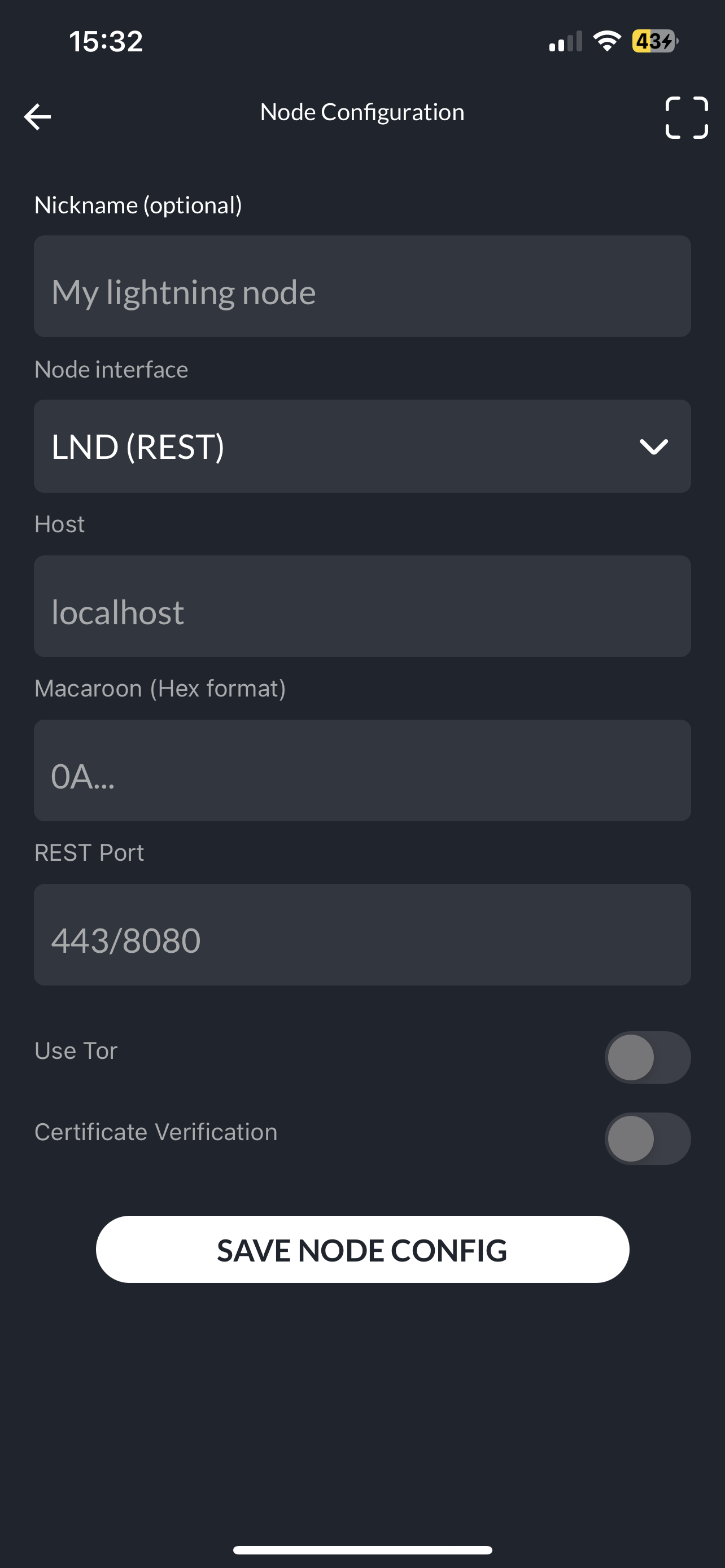
9. Blue Wallet
Blue Wallet is a non-custodial cryptocurrency wallet available on Android and iOS devices. One of the most popular Lightning wallets, Blue Wallet, is often praised as a more secure alternative to Muun and Wallet of Satoshi due to its non-custodial nature. Additionally, Blue Wallet lets you create several wallets on one app, making it a great choice for people looking for some basic portfolio management tools.
-
Trading Fees:
N/A
-
Currency:
N/A
-
Country:
Worldwide
-
Promotion:
None available at this time
Blue Wallet solely supports Bitcoin on-chain and via the Lightning Network, meaning it's unsuitable for altcoin investing. However, with connectivity to a range of popular hardware wallets and the ability to create savings accounts, Blue Wallet is the perfect choice for those looking to perform multiple types of transactions with Bitcoin.
When using Blue Wallet's lightning node and payment channels, you can expect to pay fairly hefty fees of up to 1% per transaction, which can work out even more expensive than on-chain payments. A 0.3% fee is charged for using Blue Wallet's node, and a variable routing charge is also levied. However, you can reduce these fees by setting up your own node and payment routes.
One of the biggest advantages of Blue Wallet is the ability to create multiple wallets within the app. For example, you can create separate wallets for Lightning, on-chain, and savings, making it a great choice for people looking for portfolio management tools. Furthermore, Blue Wallet's Vault option works great for securing larger quantities of BTC for longer periods.
Although Blue Wallet supports multiple types of wallets, if you want to use the Lightning Network, you must set up and connect to a node. As setting up a node can be quite complex, Blue Wallet is recommended for more experienced users than those who value simplicity over control and privacy.
Blue Wallet is a good Bitcoin LN wallet that supports on-chain and Lightning transactions. Although the high fees charged by the company's node and routing paths hinder its performance, you can set custom nodes and routes to alleviate the issue. However, due to the technical requirements, Blue Wallet is best for those looking for a Bitcoin portfolio management app or people with good knowledge of the Lightning network.
What is a Bitcoin Lightning Wallet?
Like the more common cryptocurrency wallets, a Lightning wallet lets you store, receive, and send BTC. However, there are a few key differences between both types of wallets. Most notably, significantly lower fees are achieved by bundling several transactions together in a block and sending them off-chain to settle on-chain later.
Because Lightning transactions are routed through multiple nodes, you can face issues with payments failing due to incomplete routes. Additionally, Lightning transactions have a far lower limit than on-chain Bitcoin transactions. Therefore, you may have to split layer payments into several transactions if you wish to use the Lightning Network. As such, Lightning is typically used for smaller purchases like retail spending.
How to Choose an LN Wallet
Rather than blindly selecting a random Lightning Wallet, it's best to put some thought into your choice to ensure that the wallet will meet your requirements and leave you without nasty surprises like expensive fees. Below, we've included a step-by-step guide explaining exactly how to choose the best Lightning Network Wallet.
Consider Your Needs
When selecting a Bitcoin Lightning Wallet, you should first consider your needs. Not everyone has the same requirements, so it's crucial to think about which features and elements of the wallet take priority for you. To help you determine this, it could be worth making a small list. A few of the most common factors to consider include:
- Additional features. To ensure you don't have to swap funds between platforms continuously, it's worth considering if you need features like an in-built fiat-to-crypto gateway, staking, or swaps.
- Fees. One of the main draws to a Lightning Wallet is lower fees compared to sending transactions on the main Bitcoin network. As such, you should consider the fees and cost of sending transactions when deciding on a wallet, particularly if you plan on sending small transactions that wouldn't be viable on the main Bitcoin network.
- Accessibility. Lightning transactions often occur while on the go, for example, in a shop or with a street vendor. Therefore, access to a mobile device wallet can be important. As such, you should double-check if your wallet of choice is available on mobile if you plan on using it out and about.
Assess Your Options
Next, it's important to consider all of the options at your disposal. We've included a list of the nine best Bitcoin Lightning wallets, but if there are any others you were curious about, it's worth assessing them during this step. To make this process easier, it's worth comparing your needs to each potential wallet to determine the best fit for you.
Select a Lightning Wallet
After considering your needs and assessing which Bitcoin wallet best matches your requirements, it's time to decide on a wallet. As everyone has different needs, it's important not to be swayed heavily by the opinions of others. If a particular option seems best suited to you and has a solid reputation (like any of the options we've mentioned), it's probably the right choice!
Frequently Asked Questions
Which Bitcoin Lightning Wallets Offer the Lowest Transaction Fees?
Although Wallet of Satoshi is a great choice for people looking for an easy way to start transacting on the Lightning network, Electrum or Zap Wallet are the best for low-fee seamless payments as you can set up custom nodes and routes to maximize efficiency.
What are the Best Bitcoin Lightning Wallets for Large-Value Bitcoin Transactions?
While Exodus has a $100 maximum for its Lightning wallets, customizable wallets like Electrum are best for large-value transactions, as you set up channels with large receiving limits.




